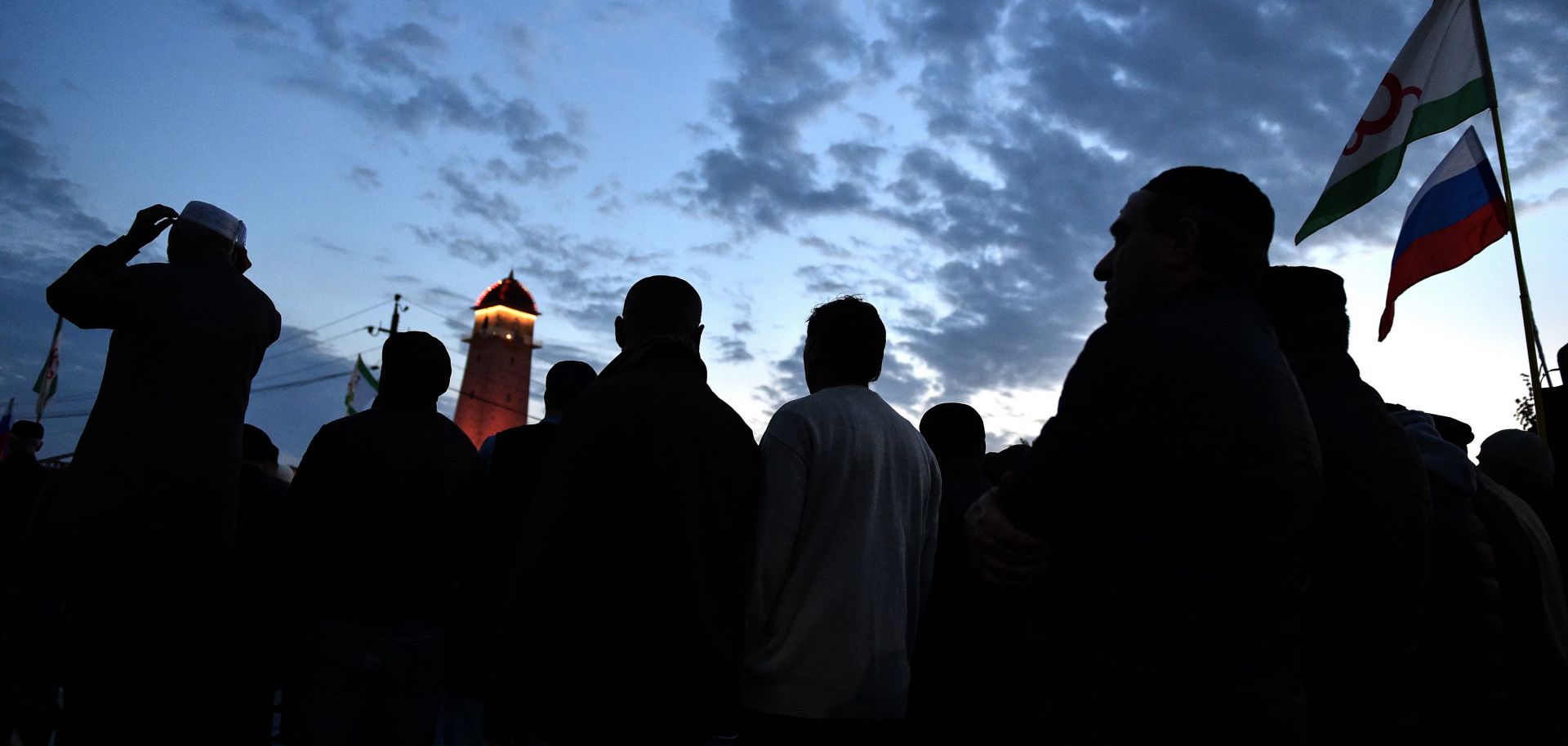ASSESSMENTS
Russia's Lingering North Caucasus Problem
Dec 21, 2018 | 10:00 GMT

Activists in Magas, the capital of the Russian republic of Ingushetia, rally against a land swap deal with neighboring Chechnya on Oct. 9. Despite authorities reportedly setting up roadblocks to hinder demonstrators, thousands attended the rare protest in the North Caucasus.
(VASILY MAXIMOV/AFP/Getty Images)
Highlights
- The North Caucasus is likely to see more protests and violence over land disputes between Chechnya and neighboring regions in the coming year.
- The Kremlin's ability to preserve stability in the region will be tested, and tensions there have the potential to spill over into greater Russia.
- Moscow will seek to contain problems in the North Caucasus through crackdowns and with concessions, but holding on to the loyalty of regional leaders and the general population could prove increasingly difficult.
Subscribe Now
SubscribeAlready have an account?
